As the renewable energy section is growing in the UK, the electricity rates fluctuate at a high rate in the energy market. These rates are continuously increasing and decreasing, unlike the gas usage rates, which remain almost the same.
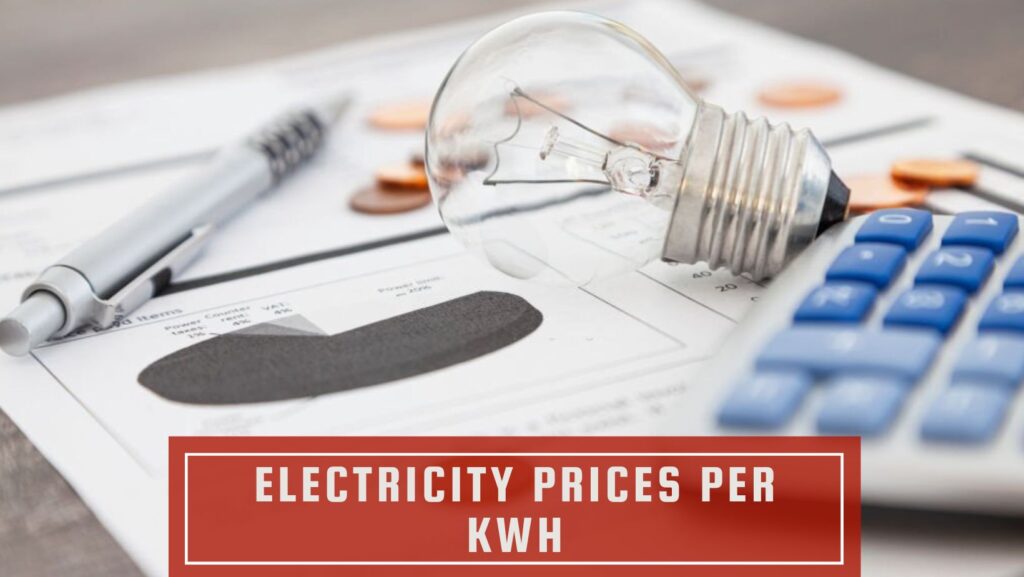
Thanks to hydro, wind, biomass, and solar energy sources, these resources are being fulfilled a considerable amount of the energy requirements. It costs less to produce energy from these sources; therefore, people are now getting lower energy bills.
However, if we talk about the factors upon which the total cost depends, there are two factors:
1. Standing Charge
Standing charge is a fixed amount of money you’ll be charged every day no matter at what rate you’ll be using gas or electricity. This charge depends upon the region in which you’re staying in the UK, and you will have to pay it regardless if you’re utilizing solar energy.
In some regions, the daily standing charge is much cheaper than in the southeast. At the same time, the fixed costs are much higher in areas such as North Wales.
2. Unit Charge
A unit charge is measured in kilowatt-hours (kWh) and is the amount of money you’ll pay per every unit of electricity you’re utilizing at your home or business. It’s a fixed rate that will charge regardless of what time you’re using units.
You can also get a dual-rate which originates from Economy 7, in which you pay a higher unit charge at day and a reduced charge around the night. In addition, the cost at the end of the month can increase or decrease depending on the usage.
What is a kilowatt hour (kWh) and kilowatts (kW)?
When you receive your energy bills every month, go through them deeply, and you’ll see that the kilowatt-hours mentioned describe how much energy you’ve utilized in kilowatts per hour. At the same time, the kilowatts indicate the rate of energy you’ve used.
By studying them intensely, you can learn to observe your energy usage, and eventually, you can start reducing your bills by being careful in many aspects.
A kilowatt is a measure in which power is measured and equals 1000 watts. On the other hand, a kilowatt-hour is a way to measure the quantity of electricity you’ve utilized in an hour.
Don’t confuse yourself with whether it equals the number of kilowatts you’re utilizing per hour. It’s 1000 watts used for an hour, just as in a 100-watt bulb which would operate one kilowatt-hour if it runs for a whole of ten hours.
What costs add up to make an energy bill?
Your monthly energy bill comes in two ways; a bill for gas usage and electricity usage. A vast range of charges adds up to make your final energy bill, which can differ in different regions. Here’s the list of all those costs:
Costs | Percentage | Details |
Wholesale Cost | 38% | Your energy supplier is charged this cost when it buys energy. |
Network Cost | 26% | The cost to deliver energy to your house from power station. |
Opertating Cost | 17% | These are the customer service costs. |
Environmental & Social Obligations Cost | 8% | The cost which the energy suppliers have to contribute to the environmental and social activities. |
VATs | 5% | It is the tax charged by the government for every good and service in the country. |
Supplier Pre-tax Margins | 5% | The cost which is the profit for your energy supplier. |
Other Direct Cost | 1% | The costs covering broker’s cost and negotiator sales commission cost. |
Average Electricity Unit Rate Per KWh
Also known as the average variable unit price, the average unit rate per kWh entirely depends on how much you’re using the electricity. Here’s the table for the average electricity unit rate per kWh as per the different regions:
REGION | AVERAGE ELECTRICITY UNIT RATE PER KWH |
South West | 15.54p |
South Wales | 15.07p |
South East | 14.68p |
North Scotland | 15.60p |
Merseyside & North Wales | 15.18p |
London | 14.53p |
United Kingdom | 14.40p |
Southern | 14.29p |
Eastern | 14.06p |
North West | 14.27p |
North East | 14.26p |
West Midlands | 14.25p |
South Scotland | 13.97p |
East Midlands | 13.86p |
Yorkshire | 13.92p |
Average Electricity Standing Charge Per Day
The average daily standing charge refers to how much you’ll be paying for the electricity in a day, no matter at what rate you use the electricity. Here, the table shows the average fixed cost of electricity in a day per region:
REGION | AVERAGE ELECTRICITY STANDING CHARGE |
Merseyside & North Wales | 21.53p |
North East | 20.63p |
South Scotland | 21.47p |
North Scotland | 20.73p |
United Kingdom | 20.58p |
West Midlands | 20.54p |
East Midlands | 20.22p |
Yorkshire | 20.53p |
London | 20.39p |
South Wales | 20.30p |
South West | 19.45p |
South East | 19.25p |
Southern | 20.28p |
North West | 20.29p |
Eastern | 20.26p |
Average Annual Electricity Bills in 2020
Region | Unit Cost | Bill |
East Midlands | 19.11 | 688 |
Eastern | 19.72 | 710 |
London | 19.76 | 711 |
Merseyside | 20.82 | 749 |
North Wales | 19.37 | 697 |
North East | 20.43 | 736 |
North Scotland | 19.39 | 698 |
North West | 17.82 | 642 |
Northern Ireland | 20.18 | 726 |
South East | 19.62 | 706 |
South Scotland | 20.09 | 723 |
South Wales | 20.38 | 734 |
South West | 19.39 | 698 |
Southern | 19.43 | 700 |
West Midlands | 19.25 | 693 |
Yorkshire | 19.64 | 707 |
Home Energy vs. Business Energy
List | Home energy | Business energy |
Energy price per unit | Usually more costly | Usually inexpensive |
Varying price | No | Yes |
VAT | 5% | 20% |
Energy regulation | No | Yes |
Contract period | Much shorter | Much longer |
Ceasing contract | Yes | No |
Energy Quotes | Straightforward | Complicated |
The electricity and gas you get at your home are the same that’s also running in your business organizations. But it’s quite a common question in the UK whether to go for home energy or business energy. Here we’re going to discuss the main differences between these two so you can understand them better:
Contract Length
If you choose a business energy contract, the minimum duration for the contract is 28 days to a maximum of 5 years. On the other hand, in-home energy contracts, you get a contract duration of 28 days while having long-term fixes on the side.
Those owners running huge businesses get to choose extended contract durations, and they’re also offered at moderate prices. But the only drawback is that you can’t leave a business energy contract before it’s due to end.
Contract Regulations
Business energy clients get contract terms having fixed costs for durations according to the energy deals they choose. However, home energy clients can experience fluctuations if they don’t select a revised energy deal.
There’s no contract expiration date for home energy clients, and the company will supply energy to the client as long as they don’t switch them.
Prices
The main difference between business and home energy is their specific pricing criteria. In business energy, prices will be much less costly as it requires a vast amount of energy in a business, and you can also customize according to your needs, locations, and much more. On the other hand, prices are much higher in home energy.

If you get a business energy deal, you’ll notice many fluctuations in the prices as the energy companies get their resources from the wholesale market. At the same time, home energy suppliers buy their resources beforehand.
Tariffs
In business energy, you get the ability to get custom tariffs, whereas in-home points, you get more generic approaches. The companies providing energy resources offer different taxes for different businesses as each has its distinctive energy requirements.
Dual Fuel
You can quickly get dual fuel, i.e., electricity and gas, from the same tariff in home energy. In contrast, you won’t get any double fuel choices in business energy, so that you can get cheap contracts for each energy need.
Types Of Electricity Tariffs UK
Electricity tariff points to the amount of money you’ll pay to get your home or office power supply. There are so many choices regarding the best tariffs that it can be hard to locate the best one according to your requirements.
Therefore, you need to be aware of your daily electricity requirements in your home or your office so you can effectively choose the best electricity tariff. You have the following options of tariffs available:
- Standard Variable Tariffs (SVTs)
A Standard Variable Tariff is set by default if you don’t choose your preference in tariffs and is the most expensive one in the UK. When you move to a new house, this type of tariff will be automatically set for your household needs.
An SVT is variable, meaning that the amount you’ll be paying at the end of the month can increase or decrease depending upon your gas and electricity usage. Fluctuations in prices for electricity and gas affect this type of tariff.
- Tracker Tariffs
A tracker tariff is not standard in the UK as only a few suppliers are providing it at the moment. These tariffs follow a fixed price index such as the wholesale prices and can fluctuate or be updated almost every day.
- Fixed Price Energy Tariff
This type of tariff is a fixed-rate plan, which offers a fixed price per kilowatt-hour for a designated duration. This duration is generally three months long, but it may be as long as three whole years.
- Dual Fuel Energy Tariffs
Many suppliers in the UK supply both gas and electricity, so you won’t have to go for another company to get these separately. It means that you’d only have to deal with one point of a contract if you are faced with any problems regarding the meters, billing systems, and usage.
- Pre-payment Energy Tariff
Most of the tariffs in the UK offer at least one prepayment energy tariff to which you can get your supply switched. In this kind of tariff, the user must pay the price for the energy before actually using it.
- Economy 7 Energy Tariff
Economic seven energy tariff is an energy meter that charges varying costs per kWh concerning day and night. To know if your meter is an economy 7 meter, you need to check your bill for two different prices for electricity usage and Meter Access Number (MPAN).
- Economy 10 Energy Tariff
An economy ten energy tariff is quite the same as the economy 7 one based on both depending on electricity usage time. However, it’s not so common, so not many suppliers are offering economy ten energy tariffs.
- Capped Energy Tariff
A capped energy tariff promises its users that the energy rate wouldn’t increase but still can decrease. Some big companies provide various tariffs that offer a capped price in which the price decrease occurs in terms of the supplier’s SVT.
- Green Tariffs
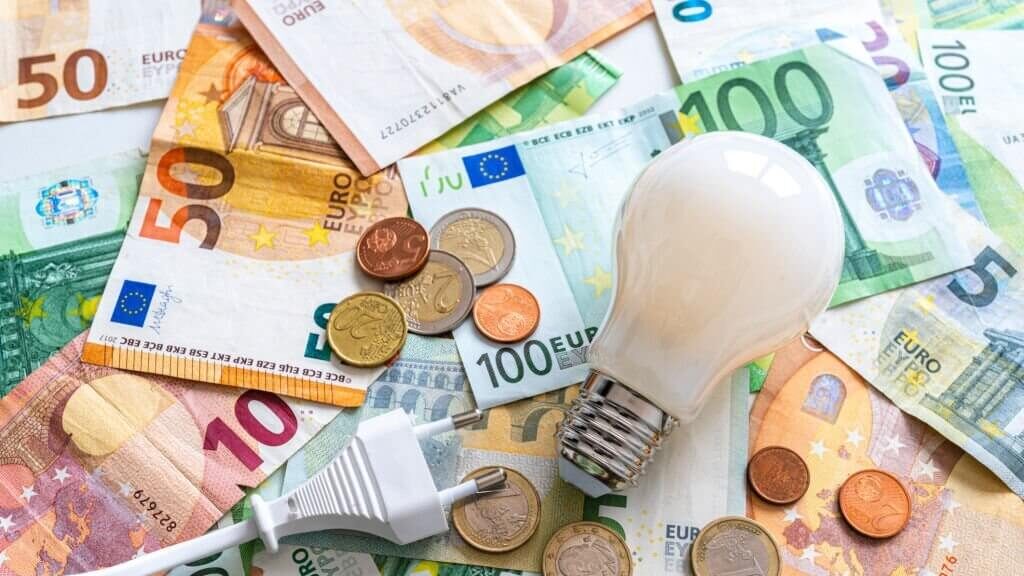
Green tariffs provide 100% renewably sourced electricity, and some also offer 10% renewably sourced gas. These tariffs are the most common and one of the cheapest ones in the market at the moment, offering a reduction in prices as they contribute to renewable energy.
Where To Find Cheap Energy Deals?
Tariffs and energy costs change as per the area; therefore, if you’re looking for the most cost-effective rate for electricity, it would be best to get to know about the new tariffs. The energy providers in your area introduce these latest tariffs.
In addition, it would be best to switch your energy supplier every year as doing so will decrease your energy bills to some extent. Otherwise, your energy supplier would automatically switch you to a much costly tariff.
Here we have prepared a list and compared some of the cheapest tariffs so you can find the lowest kWh charge:
Supplier | Traffic | Elecricity Daily Standing Cost | Electricity Pence Per kWh | Monthly Cost |
Neon Reef | Marine | 13.514 | 13.658 | £39.39 |
Symbio Energy | Low Fair | 16.500 | 13.161 | £39.02 |
Neo Energy | NEO 4.1 | 20.15 | 13.30 | £40.33 |
Things To Consider Before Changing Energy Supplier
Planning on changing your home or office’s energy supplier? There are some things that you should undoubtedly put into consideration before changing, which we have listed here for your convenience:
- Should you sign up to the cheapest deal?
When you opt to change your energy supplier, you should first consider finding and signing up for the best low-priced tariff in your area. However, there are a lot of things that should also be considered when selecting the cheapest tariff. That’s why conducting proper research and know what you’re signing up for.
- Examine the customer service
Before choosing the cheapest deal, you need to remember that the customer service should be up to the mark. Don’t compromise on the customer service just because the agreement is inexpensive, as there can be many problems in the future.
The best way to check the quality of the customer service is to see the reviews made by their users. It will deeply explain how easy it will be to contact the service and the transparency of bills.
- Go through the green credentials
Green tariffs are not the cheapest in your area, but you should still determine that ‘going green’ won’t cost the earth. By doing just a bit of research, you’ll be able to find the one relatively cheaper than other green tariffs in the area.
The tariffs that seem expensive than the others also provide many added benefits, such as you get a choice to offset your carbon footprint.
- Single or dual fuel
Another essential thing to consider before changing your energy supplier is to check whether the supplier offers a dual or a single deal. A double deal consists of gas and electricity, whereas the single one only provides a single fuel.
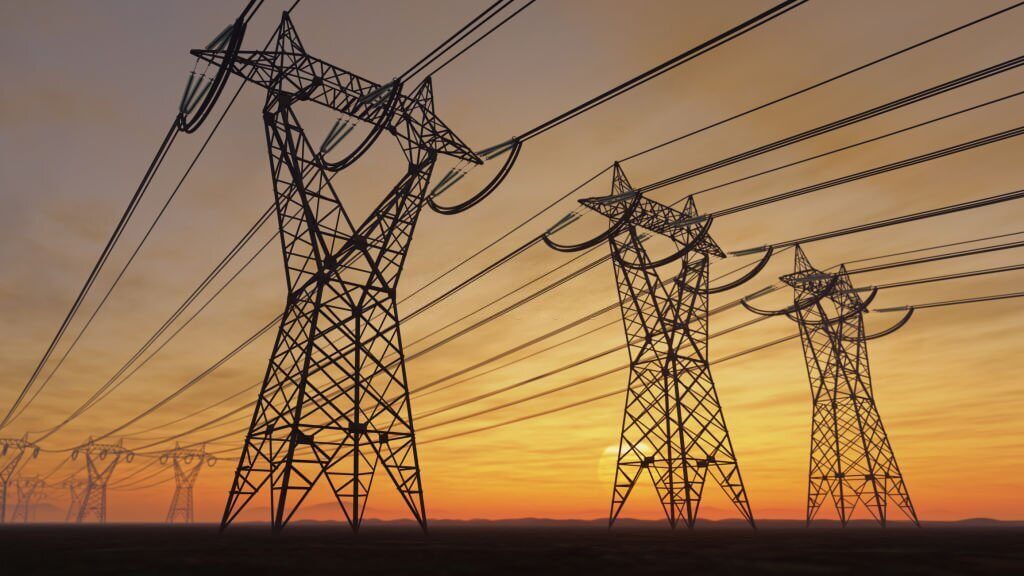
It would be best to choose a dual fuel supplier as many companies will most likely offer significant discounts for their new customers, including cashback offers. The main benefit of choosing a dual fuel deal is that you won’t have to deal with two different companies for both of your needs.
- Have an inquiry about ‘Exit Fees’
Many companies charge an exiting fee when you opt for switching them early; therefore, it would be best to determine if the new company charges this fee or not. These exit fees can be as high as £60 for those who choose a dual-fuel tariff.
- Fixed VS Variable Tariff
Many energy suppliers provide the option of a fixed or a variable tariff, similar to the mortgage rates. Fixed energy tariffs are pretty common in the UK these days, and no matter which one you select, the rate may depend upon the value you’re placing on certainty. The price you must pay for the confidence is high, and also, fixed tariffs are a bit more costly than the variable ones.
Average Annual VS Monthly Electricity Charges
Region | Average Annual Electricity Bill | Average Monthly Electricity Bill |
North Scotland | £602.13 | £50.17 |
Merseyside | £590.88 | £49.24 |
North Wales | £590.88 | £49.24 |
South East | £565.67 | £47.13 |
South West | £595.32 | £49.61 |
South Wales | £582.56 | £48.54 |
London | £564.60 | £47.05 |
United Kingdom | £557.94 | £46.49 |
North East | £556.41 | £46.36 |
North West | £555.68 | £46.30 |
Southern | £556.41 | £46.36 |
South Scotland | £549.68 | £45.80 |
West Midlands | £555.73 | £46.31 |
Eastern | £548.27 | £45.68 |
Yorkshire | £544.42 | £45.36 |
Comparing Rewards And Incentives From Electricity Suppliers
The energy suppliers in the market offer a vast range of rewards and incentives to attract their customers. You can get cash rewards, credits to your bank account, or even vouchers for various shopping outlets.
Here we have concluded a list for all the companies offering new client rewards worth £30 or even more. You can compare all the bonuses from different suppliers and choose the best one for you. However, don’t forget to check their customer services and various factors before actually putting your mind onto one.
Companies | New Client Reward | Cheapest Energy Traffic | Saving vs The Price Cap | Client Scores |
Green Network Energy | £30 energy credit | £980 | £274 | 68% |
Ovo | Vouchers worth £30 for either Amazon, John Lewis, or M&S | £1,036 | £218 | 74% |
Bulb | £50 credit on energy | £1000 | £254 | 72% |
iSupply Energy | £30 credit on energy | £991 | £263 | 57% |
Good Energy | £50 credit on energy | £1,490 | £236 | n/a |
Utilita | Voucher worth £30 for Amazon | £1,240 | £2 | 71% |
Octopus Energy | £50 credit on energy | £975 | £279 | 80% |
Companies Electricity Cost Per kWh
There are so many options in the UK regarding energy tariffs from which it can be quite a strenuous task to select one. Therefore, you can only know which tariff best suits your needs and preference when you compare them all.
Different sites and energy providers only display the currently available tariffs in the market and offer other deals. However, even when a tariff shuts down in the market, it can still have many users having dealt with them.
Here are some of the major companies in the UK providing a massive range of tariffs to meet the customers’ needs effectively:
- Outfox The Market
Tariff | Electricity Daily Standing Charge | Electricity Pence per kWh | Gas Daily Standing Charge | Gas Pence per kWh |
Fix’d 20 11.0 | 11.32 | 12.60p | 11.32 | 2.49p |
FIX’d 20 5.0 | 23.10 | 12.24p | 24.99 | 2.10p |
Fix’d 20 5.0 Plus | 26.25 | 11.87p | 24.88 | 2.07p |
ONE GREEN FLEX 2.0 | 26.25 | 11.87p | 24.88 | 2.07p |
The tariffs, as mentioned earlier, are the cheapest ones offered by the company of Outfox, The Market. here, the cost for electricity per kWh ranges from 11.87p to 12.60p, meaning that when you’re using a tariff from this company, you’ll be charged an average of almost 12 pence.
However, the daily standing cost for electricity ranges from 11.32p to 26.25p which you must pay no matter at what rate you’re using the electricity. If you live in a household where the energy consumption is relatively low, it would be best to find a tariff offering the best and lowest daily standing charges.
- Octopus
Tariff | Electricity Daily Standing Charge | Electricity Pence per kWh | Gas Daily Standing Charge | Gas Pence per kWh |
Octopus Fixed | 21.672 | 15.0255p | 17.85 | 2.562p |
Super Green Octopus | 21.672 | 15.0255p | 17.85 | 2.961p |
Flexible Octopus | 19.383 | 15.519p | 16.8 | 3.2025p |
Octopus isn’t that expensive option in the market, and their tariffs are also moderately priced. As evident from the table, all tariffs charge around 15 pence for every kWh of energy. So it’s apparent that Octopus is about 3-4p per kWh more costly compared to the Outfox.
On the other hand, if you look at the daily standing charge for energy, it ranges from 19 to 21 pence per day. Hence, Outfox is a much better option for typical households in the UK than Octopus in customer service and many other factors.
Current Energy Prices Per kWh
As we’ve mentioned before, energy rates are constantly fluctuating in the UK as your bills depend upon many factors. The higher the unit rate is currently, the more costly bills you’ll get, depending on your energy usage.
Following are the current energy prices per kWh in the UK:
Gas Price Per kWh
Supplier | Tariff | Average kWh unit price (ex VAT) | Annual standing charge (ex VAT) |
OVO Energy | Better Energy Fixed | 2.838p | £85.78 |
E.ON | E.ON Go Online 1-Year High user V1 | 2.839p | £90.08 |
EDF Energy | Blue + Price Protection | 2.855p | £91.25 |
Scottish Power | Help Beat Cancer Fix and Save | 2.859p | £142.82 |
Electricity Price Per kWh
Supplier | Tariff | Average kWh unit cost (ex VAT) | Annual Standing Charge (ex VAT) |
Scottish Power | Online Fix and Save | 12.376p | £114.28 |
British Gas | All Online | 12.499p | £83.15 |
Sainsbury’s Energy | Price Promise | 12.827p | £87.86 |
OVO Energy | Better Energy Fixed | 12.978p | £85.78 |
E.ON | E.ON Go Online 1-year High User V1 | 13.119p | £77.93 |
What is A Good Price Of Electricity Per KWh?
A reasonable price of electricity per kWh in the UK is about 12 pence which are only available from the cheapest energy suppliers in the area.
It would be best to consider that the daily standing charge provided by any energy tariff lets you use any amount of electricity you want. In addition, you’ll be only paying the fixed rate at the end of the month.
How Are Energy Bills Calculated?
When your bill is being calculated, the energy provider you’ve chosen will check the number of kilowatt-hours of electricity and gas you have used.
This amount is usually calculated for a month, and then the supplier multiplies the amount with the fixed price per your tariff.
According to the tariff, the supplier then multiplies the number of days you’ll receive the bill to the daily standing cost.
Lastly, the supplier adds the figures and updates the total amount you’ll have to pay on your energy bill.
How Can You Get Lower Commercial Electricity Rates?
Getting the cheapest tariff to get lower commercial electricity rates is not an easy task. However, we have provided a list of some tips that might help you:
- The first possible way to get the lowest commercial electricity rates is to compare different suppliers.
- Determine the amount of electricity you’re using every year so you can get yourself a decent discount according to your usage.
- You should have your Meter Point Administration Number (MPAN) prepared, which can help you compare different tariffs.
- Consider the way you’ll be paying your electricity bills. It’s because some companies such as EON and EDF are offering a discount of about 7% if you’re paying them through debit cards.
- Always determine your supplier’s credit rating as if it’s not that good, you’ll end up paying more for your commercial electricity usage.
- Determine the time at which you’ll be using the electricity as you can take advantage of off-peak rates if you use energy at late night hours.
- Consider buying your own renewable energy equipment. For example, you can buy solar panels or wind turbines to generate electricity on your own.
- If you have various branches for your business, you can get a good deal from your tariff as you will buy in bulk.
- Start using LED bulbs and lower the electricity consumption by switching off excessive lights, fans, or appliances.
How Can You Lower Your Electricity Bills At Home?
Switching your energy supplier at least once a year is the best way to reduce your energy bills and will save you a considerable amount. However, you can also avoid some everyday things and adopt some habits so that you can reduce your bills a bit every month:
- Never leave appliances on stand-by
The main habit that adds up to a considerable wastage of electricity each month is when you leave your appliances on standby. You won’t even be noticed, but it puts a massive difference in your electricity bill at the end of every month.
The Energy Savings Trust has estimated that you can save up to £80 a year if you change some of your habits around the house. Always switch off every appliance if it’s not in use, and you can add it to your night-time schedule where you check all the devices before going to sleep.
- Discard old appliances consuming a huge fraction of electricity
You might not like the idea of throwing your old appliances out when they’re working just fine. However, if they don’t have an effective energy efficiency rating, it would be best to discard them. They’ll be consuming a considerable amount of electricity each month and will add to your electricity bill to a great extent.
The Energy Saving Trust suggests upgrading your refrigerator or other appliance with an A+ rating to a model with an A+++ rating. It will help saving up to £300 per year, which is a considerable amount if it’s being wasted for no apparent reason.
- Get a control on the heating
Heating water in homes is one of the main reasons for increasing the energy bills in the UK. According to research, more than half of the energy bills were due to heating and hot water.
If you lower a degree Celsius in your house, your bill will reduce at least by 10%, and the carbon release will be controlled too. If every household in the UK lowered their thermostats by a single degree, it could restrict 8.8 million tonnes of carbon released to the atmosphere annually.
- Install LED light bulbs
A few years ago, low-energy consuming bulbs used to be quite costly and not reliable at all. But as the advancements were made with time, LED bulbs are now far more efficient, inexpensive, and extremely sturdy.
When buying an LED bulb, it would be best to consider what fitting you will require at your home and the shape you’d like. In addition, I also believe the number of lumens and kelvins.
- Consider making your own energy
What can be better than generating your energy at your home? Solar energy can be the perfect option, but you’ll have to consider whether you have a roof that gets direct sunlight from the sun or can you make it effectively?
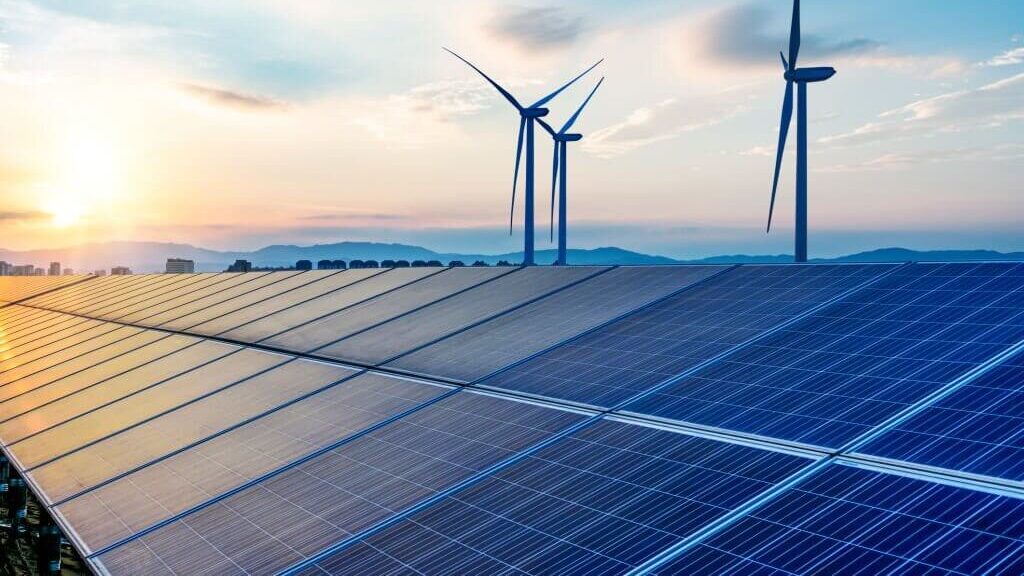
If you’ve made up your mind on solar energy, then firstly, consider if your panels and inverter are sturdy enough. In addition, batteries are essential parts as they will store a good amount of energy for you to use later.
- Get yourself a smart meter
If you keep a keen eye on your daily electricity usage, you’ll get to know whether your bill will be under the range or not. By doing so, you’ll always remind yourself to turn off every extra light, fan, or any appliance running in the house without being used.
Getting a smart meter will show you the list of all the things that consume electricity in your house, and eventually, you’ll know where to start saving electricity.
UK Energy Production From Renewable Sources
The UK’s wind farms, biomass, solar energy, and hydro plants generate more electricity than the total output generated in the power stations. Offshore and onshore wind is the leading renewable energy source and the most suitable area to create this energy in Scotland.
Here are the primary renewable energy sources in the UK at the moment:
- Solar Energy
Sunlight is by far one of the most widely used renewable energy sources as it won’t ever run out. According to research, the quantity of solar energy reaching the earth per hour can cover the whole planet’s energy needs for more than a year. In the UK, solar photovoltaics are used, which act as a panel that converts the sun’s rays into energy.
- Wind Energy
Most of the renewable energy in the UK is generated through wind energy as wind is a source of abundant and clean energy. Wind turbines are used, consisting of generators that efficiently gather the power to collect energy from the wind.
- Biomass Energy
Biomass energy is obtained when you burn organic materials and is a cleaner and efficient way to generate electricity. It converts agricultural, industrial, and domestic wastes into different forms of fuel and does this at a much-reduced rate.
- Tidal Energy
Tidal energy is developed by using tidal currents for driving the turbine generators. Though tidal energy is not constant as hydro, solar, and wind energy, it can be easily predicted and compensates when the tides aren’t that high.
- Hydro Energy
Hydro energy is generated when a dam is built, and a vast reservoir develops a supervised water flow. This water flow drives the turbine inside the barrier and creates electricity far more reliable than solar or wind energy.
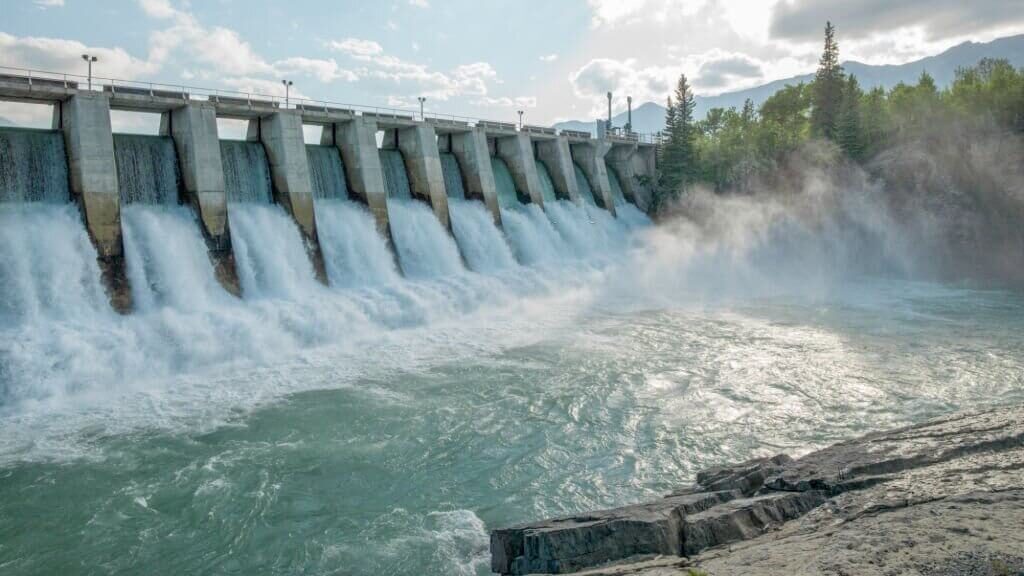
- Geothermal Energy
Geothermal energy uses the natural heat from beneath the earth’s surface, directly heats your home, and generates electricity. But it’s not that renowned in the UK as it’s in Iceland, where there’s more abundance of geothermal heat.
What Are The Benefits Of Using Renewable Energy At Home?
- Your electricity bills will be lowered as a whole when you use renewable energy at your home. You’ll only need to invest in a renewable energy system, and you will rely on the National Grid to a lower extent.
- You can earn for the energy you’re generating at your home. The Feed-in Tariff introduced by the UK government has claimed to pay you when you’re generating electricity, even if you’re the one utilizing it.
- If you’re generating enough renewable energy, you can sell this energy to the National Grid, and you’ll also get a bonus payment by the Feed-in Tariff.
- Using renewable energy in your home, the rate at which carbon releases into the atmosphere will be much lower. Renewable energy doesn’t release any carbon elements or other toxic pollutants into the air.
Which Are The Best Green Tariffs?
A green tariff is a green energy provider which helps you protect your surroundings by lowering the carbon release. Here we have concluded a list of the best green tariffs in the UK at the moment:
Green Energy Suppliers | Cheapest Green Tariff |
Bulb | £1057.40 |
Octopus Energy | £963.67 |
Outfox the Market | £908.49 |
Goto. energy | £932.28 |
People’s Energy | £909.93 |
Good Energy | £1121.71 |
So Energy | £1019.92 |
OVO | £1006.96 |
Pure Planet | £988.10 |
Ecotricity | £1158.58 |


Comments are closed.